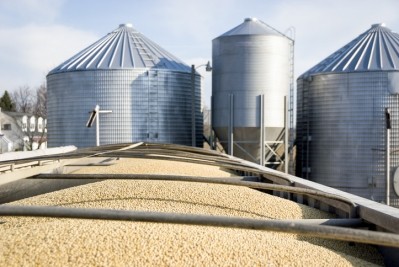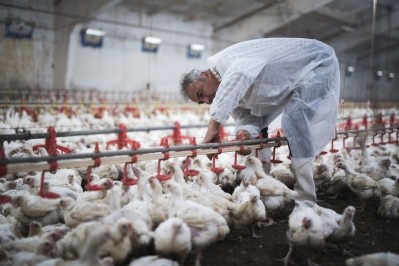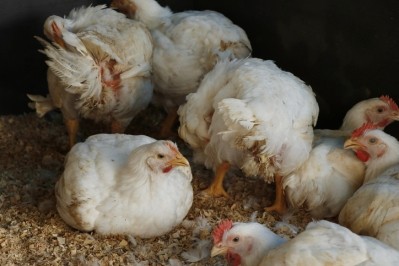Draft USDA rule proposes protections for poultry farmers against corporate abuse

A draft USDA rule proposes protections for US poultry farmers against corporate abuse. It is the third of four rules aimed at strengthening the Packers & Stockyards Act, as part of the Biden Administration’s commitment to enhancing competition in the agricultural sector.
In the US, 99.5% of all domestic broiler chickens are grown by contract growers who sell in markets dominated by a handful of poultry monopolies that dictate everything from farming practices to prices. Just four poultry giants control 54% of the processing sector.
Poultry companies have 'too little' accountability
The new measures aim to address a range of abuses related to grower ranking payment systems, commonly known as tournaments, and additional capital investment requirements that poultry companies impose on their contract growers. Processors supply farmers with chicks, feed, and medication, while growers provide the facilities and labor to raise the birds until they are ready for slaughter. However, there have been long-standing complaints by farmers that processors have too much leverage in these arrangements and too little accountability. Growers are often compensated based on how efficiently they produce meat compared to others contracted by the companies.
The US Department of Agriculture (USDA) concurs, stating that the current US broiler chicken industry is susceptible to both unfairness and deception.
“Poultry growers deserve a fair shake and consumers deserve fair prices,” said USDA senior advisor for fair and competitive markets, Andy Green. “This proposed rule is intended to provide growers with a clear base price in contracts, a contracting partner that designs and operates any comparisons fairly, and access to the information that growers—and USDA—need to identify and halt coercive investment demands before growers take on large debts.”
Debt burden
The draft rule reveals that to build or upgrade chicken barns, growers incur substantial debt in loans typically lasting 15 years. To meet these obligations and earn a reasonable return, the grower is dependent on the company that provides the chickens, feed, and other inputs. Grower contracts with the processor are commonly much shorter than the length of the loans. Growers often have little, if any, ability to negotiate their contracts or switch to an alternative processor.
If a grower’s feed conversion performance is above average, the grower receives a bonus; if below average, the processor reduces the grower's compensation. “In theory, the tournament system insulates growers from variation in the cost of feed and other inputs, encourages growers to perform to the best of their ability, and rewards better-performing growers. In practice, however, the tournament system has many problems,” according to the USDA document.
The agency notes that if a processor treats individual growers in a tournament differently by, for example, providing different quality inputs, the grower’s skill would not determine their compensation, leading to an unfair tournament.
Risks and uncertainties
Emily Miller, an attorney with Food & Water Watch, commented, “Today’s poultry tournament system stacks the cards against farmers, forcing them to absorb all the risks and uncertainties of poultry growing, and letting Big Chicken corporations reap all the rewards. It’s unacceptable, and we applaud President Biden for standing up to these food monopolies. Beyond merely keeping producers informed about how their contracts are unfair and exploitative, today’s draft rule proposes to protect poultry contract growers from corporate abuse.”
Stakeholders and other interested parties have 60 days from the date of publication of the rule in the Federal Register to submit comments.








